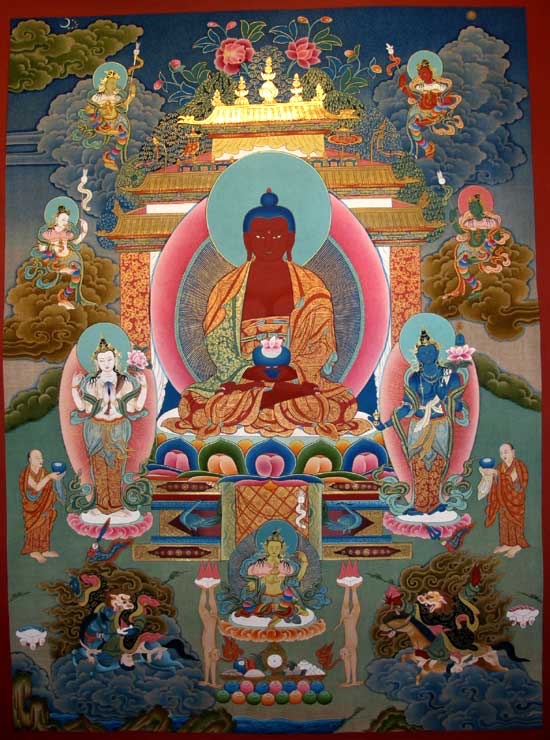
After you have wrapped up all the loose ends that I talked about in my last blog post, it’s time to let this life go and focus on your practice and the dying process. As Dzogchen Ponlop Rinpoche puts it, “Unwillingness to let go of this life is the main cause of the pain in this bardo [the transitional state of dying].”
It’s also time to let go of partiality toward one group of living beings over another, if you haven’t already done that. Drop political resentments. Turn off the news or other inputs that spark anger and disconnectedness. Decide to feel fierce love and compassion for every single sentient being. Many people have trained like that for decades… it’s called the Way of the Bodhisattva. But, nowhere is it written that you can’t make a decision and change your mind right now. In your heart of hearts, you know that everyone needs to move beyond this kind of pettiness to reach spiritual maturity. Today’s the day.
Check inside and see if you have real faith in Buddhism in relation to the so-called afterlife. If you have more faith in an eternal God, Goddess, or Great Spirit… that they are going to reach out and save you somehow, be honest with yourself. Do you want to return to the house of worship of your youth? Buddhism sees that kind of eternalism as an extreme view that should be abandoned. But who cares what we think? With a deadline looming, you need to embrace what you truly believe.
Similarly, if you really feel there is nothingness after death, no continuity beyond this life, why not check out secular humanism? Again, this is an extreme view from a Buddhist perspective, but cognitive dissonance is going to create turmoil inside if you try to practice Buddhism.
How to Practice Buddhism as you Approach your Death
Okay. So, you have decided you do have faith in the Buddha, Dharma and Sangha; the Buddhahood being your goal, the dharma being the means of getting there, and your sangha as your peer support along the path.
If you haven’t done much practice
Has meditation been difficult for you? There are a lot of reasons that could have been true. The most common way of working with that at the end of life is to focus on the Buddha Amitabha, the Buddha of Infinite Light and his pure land, Dewachen. Dewachen is like a blissful intermission between this life and the next, where your practice is much easier than when you had a human form. To aid in resting your mind there, you do the mind training of Amitabha. Say the Amitabha mantra everywhere you go. Imagine this red Buddha in his beautiful, soft, stress-free, domain in the western sky. If you are bed bound, you may want to put an image of Amitabha on the wall where your gaze falls. Say his mantra OM AMIDEVA HRIH constantly and prepare to leave to be with him, born on a fully opened lotus.
If you have engaged in Buddhist practice for a while already
Say to yourself, “Here you go old girl. Here you go old man. We’ve been training for this. We can do this.” Arouse a sense of adventure, like you are moving to a new country. Set your intention to stay calm, clear and present through the whole process. How long have you been able to rest like that in your mind’s nature so far? During your process of dying, your attention will withdraw from the world around you, which for some people will allow them to focus on their practice more than ever before.
Gather your Sangha
If you have a community of practitioners, pick the biggest extravert among them and ask him or her to contact sangha members and to come and practice with you while you are dying. Ask that person to be the coordinator who organizes them for group practices, sitting with you at the bedside, if they feel comfortable with it. Any practice is okay. Individuals can read for you from the Precious Treasury of Basic Space by Longchenpa before and after your passing.
Make Contact with Teachers and Clergy
If you have a local lama you are already connected with, ask them if they can come to your place right after you pass and perform the transference of consciousness, or whatever practice they feel is most appropriate. It’s a big ask, make a generous offering to them while you are still able.
Now the stage is set. Tomorrow we will review the stages of the dying process, and the practices that go along with them.




